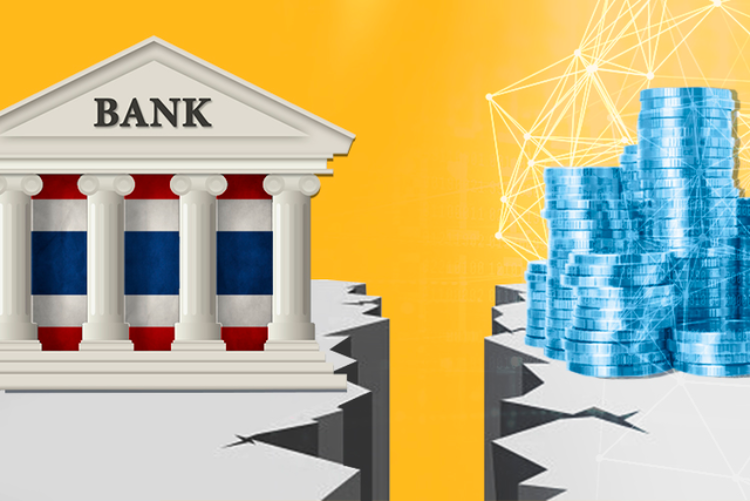Thailand Legalized Virtual Money For Everyone. Except Banks

East is a delicate matter, especially South-east Asia. The central bank of Thailand gave a permission for the financial conglomerates' subsidiaries to conduct operations with cryptocurrency, but didn't allow it to the conglomerates themselves. What does that mean?
If you translate the regulator's circular from eastern to English you will see that brokerage institutions, insurance companies and other structures accompanying banking processes may reach out for ICO, invest into crypto assets and operate digital currencies even if they have large lending institutions among their founders.
For parent banks themselves the rules of operating with cryptocurrency are way more strict. They may not make transactions with it, launch their tokens, take part in any crypto business including exchanges, provide brokerage services on the crypto market. More than that, financial institutions of Thailand are not allowed to even provide consulting services if the investor is not accredited to the SEC of the country.
These are strange rules. At first glance it's not clear what was the reasoning of the regulator. If it's about the stability maintenance and the predictability of financial system of the country then the defence of cryptocurrency's volatility and unpredictability is not appropriate. Everyone loses money. For example, insurance companies are equally accountable to consumers as banks, but they are allowed to work with cryptocurrency. If it's about financing of illegal operations and tax fraud then large amount of crypto coins may come through brokerage institutions to an unknown destination. So the struggle against illicit trafficking in currency is not an argument either. In other words, if you forbid then forbid for everyone. And if you permit - then permit all.
So is there any logic in the central bank of Thailand actions?
You can find it if you give a crypto market regulation problem a closer look.
Moreover, it will be confirmed from the halfway around the world. Petra Hielkema, Division Director Payments and Market Infrastructures, Dutch Central Bank, said the other day that cryptocurrency cannot be considered a real money. "Things are not often bought with cryptocurrencies, it is too volatile for savings and its value is expressed in real money, Anyway, despite the skepticism in regard with cryptocurrency no one is going to forbid it", - she underlined.
Two examples, from the East and from the West, with the similar message demonstrate a very interesting trend. In many locations around the world there is an orderly forcing of cryptocurrency out of the banking system. It seems that the state structures are targeted to not allow national credit institutions to operate assets which are not affiliated with the state or intergovernmental exchanges (foreign trade).
Independence from emission centres is the main threat of cryptocurrencies for the classical domestic and external markets. You can't manipulate cryptocurrency if it's not government-issued. You can't use it as a tool in national and international combating. It just hampers countries in the West and East to stay the same.